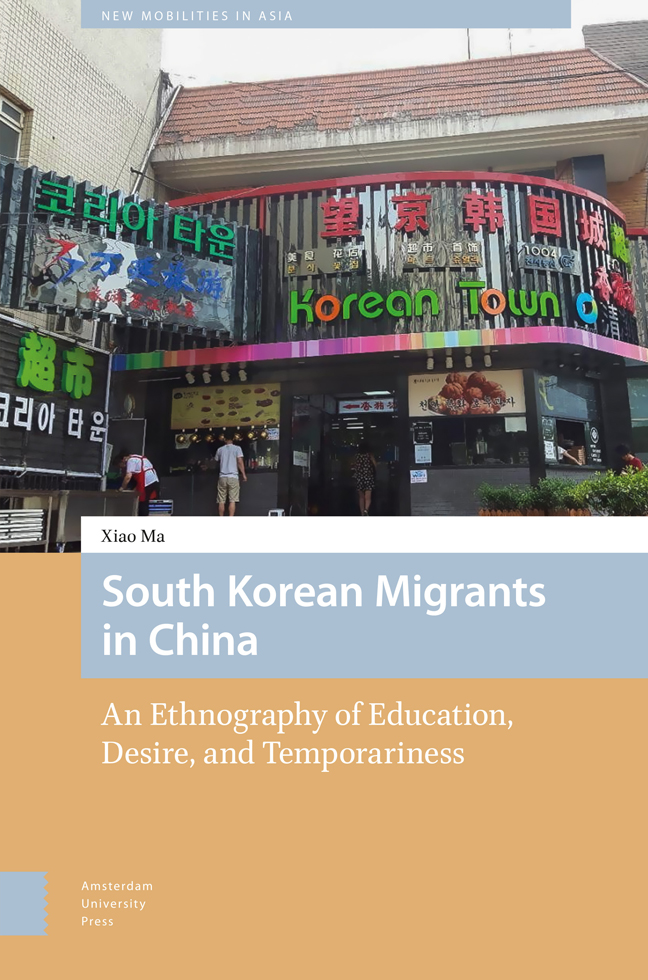Book contents
- Frontmatter
- Contents
- List of Illustrations
- Acknowledgements
- 1 Introduction
- 2 Temporary Residents’ Community in Beijing
- 3 The Internationalised Education of China and the Globalised Education of South Korea
- 4 Educational Desire in School Choice: Identities of Home, Destination and the World
- 5 Desirable Homecoming: The Pursuit of Tertiary Education in the Context of Temporary Migration Regimes
- 6 Internationalisation in Chinese Education: The Quest for Entry to a Top Chinese University
- 7 Conclusion
- Index
6 - Internationalisation in Chinese Education: The Quest for Entry to a Top Chinese University
Published online by Cambridge University Press: 26 March 2024
- Frontmatter
- Contents
- List of Illustrations
- Acknowledgements
- 1 Introduction
- 2 Temporary Residents’ Community in Beijing
- 3 The Internationalised Education of China and the Globalised Education of South Korea
- 4 Educational Desire in School Choice: Identities of Home, Destination and the World
- 5 Desirable Homecoming: The Pursuit of Tertiary Education in the Context of Temporary Migration Regimes
- 6 Internationalisation in Chinese Education: The Quest for Entry to a Top Chinese University
- 7 Conclusion
- Index
Summary
Abstract
This chapter looks at and compares Korean migrant children who study at both Chinese high schools and universities, as well as Korean students who are sent to China to pursue tertiary education. I examine these students’ motivations to stay in China and their desire for a place at a prestigious Chinese university. I contend that educational desires are emergent in inter- and intra-group dynamics, and are further propelled by the internationalisation of Chinese education. My analysis highlights a state of ‘beneficial segregation’, whereby non-native students in China are afforded university admission opportunities not available to local students. Furthermore, this chapter looks at the role of Korean education agents as ‘compliant subjects’ who assist Korean students with their desire to study at top-ranked Chinese universities.
Keywords: University admission, evolved desire, stigma, compliant agent, beneficial segregation, Chinese internationalisation
Choosing to Stay: From ‘Chibang’ to Centre
My one-year experience of living in Seoul revealed to me that a geographical dichotomy is prevalent in the daily expression of people in contemporary Korean society: a discrepancy between Seoul (the capital, the centre) and elsewhere in Korea (chibang, the periphery). Living in Seoul between 2013 and 2014, I witnessed a linguistic hierarchy frequently present in daily conversations: people described a geographical movement from any place (a village, a city, or a province) in Korea to Seoul as ‘going up’ (ollagada) and, conversely, moving away from Seoul was described as ‘going down’ (naeryŏgada). Some people explained this disparity in terms of geographic location. Seoul is in the north of the country and hence heading from southern locations to Seoul is considered ‘going up’.
However, I believe that this use of language also implies a sense of social direction. In the education domain, Seoul has the most prestigious universities and secondary schools, whereas the educational institutes outside Seoul are regarded as relatively low in prestige (Seth 2002, 143–144). Support for this view is that Korean student informants in this book also declared that their goal in the university entrance exam had been admission to an ‘in-Seoul’ university. Admission to a university outside of Seoul was accordingly considered as having been downgraded (somewhat disgracefully) to a lower tier of university.
- Type
- Chapter
- Information
- South Korean Migrants in ChinaAn Ethnography of Education, Desire, and Temporariness, pp. 151 - 176Publisher: Amsterdam University PressPrint publication year: 2024

